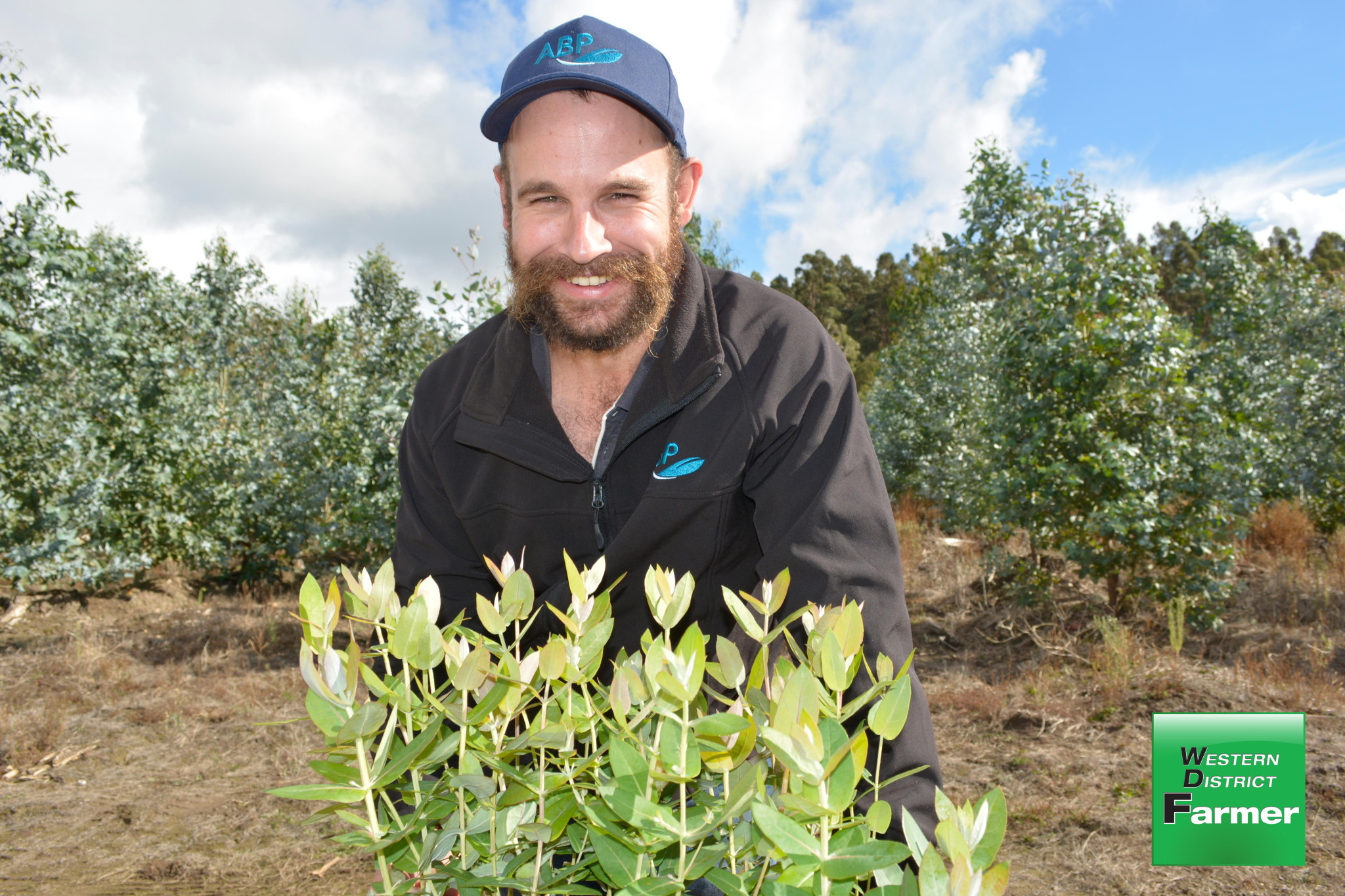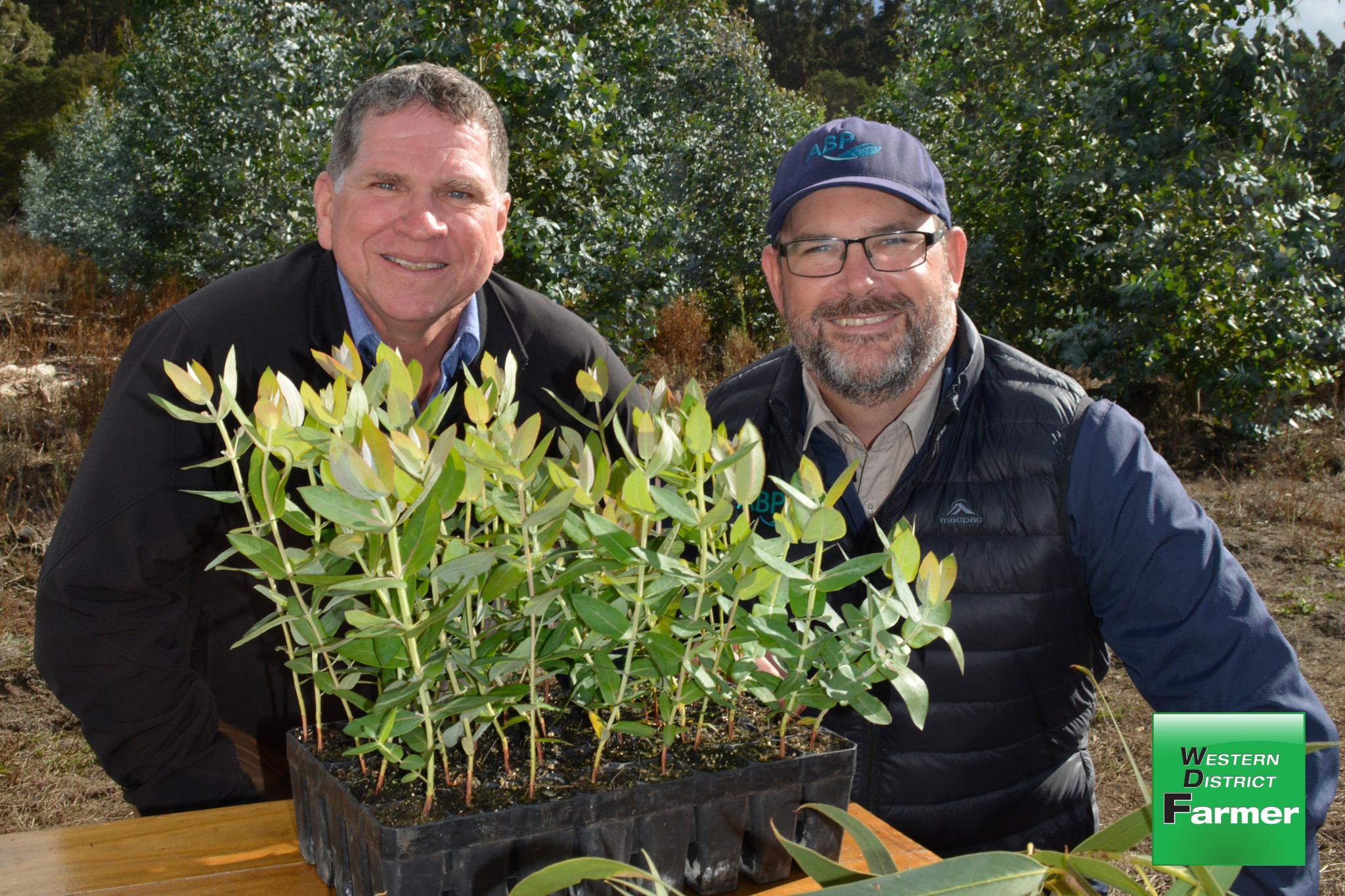Cropping & Soil
1 June, 2025
Green Triangle bluegum industry secured
UNIMA, near Heywood, is the new site for Australian Bluegum Plantations (ABP) seed orchard. The opening of the five-hectare orchard will secure seed supply and enhanced genetic material in the Green Triangle, well into the future.

ABP CEO Russ Hughes said the investment reflected the company’s strategic shift towards full autonomy of seed production – an essential move as demand grows for high quality Eucalyptus Globulus fibre in Asian markets and emerging engineered wood products, including glue laminated structural beams.
The orchard will provide access to genetically diverse and locally adapted planting material capable of dealing with future climatic conditions.
The Unima orchard compliments the existing orchard assets in Albany – which supports the West Australian division of the company.
We expect the orchard to support up to 10 seasonal workers and 1.5 permanent roles.
“This seed orchard is more than just a seed source – it’s a strategic asset for the entire region, securing the future needs of the hardwood plantation sector.”
ABP research and development manager Dr Ben Bradshaw said by investing in seed production at Unima, they are enhancing the resilience of plantations and future proofing operations through an integrated localised management approach.
“The site will play an important role in broadening and conserving genetic diversity and provide for future breeding requirements, including the deployment of high performing seed suited to the Green Triangle environment.
The Green Triangle is recognised as Australia’s premier location to grow hardwood plantation fibre due to its climate, topography and accessibility.
The region’s dry summers and cool wet winters suit the growing conditions required for eucalyptus globulus to thrive.

The seed is sourced from ABP trees, which have been growing in the Green Triangle region for the past two decades.
Seedlings are planted during the winter season. It takes approximately 12 to 15 years before the trees are harvested, depending on the growing conditions.
Some of these new seedlings may be harvested as late as 20 years to suit the characteristics required for making structural timber products, an emerging market base.
“ABP is shifting from being just users of elite genetics to custodians, managing every aspect from orchard to estate to provide long-term control and confidence in the future fibre it produces.
“Undertaking breeding, selection, production and deployment in-house provides tighter control over genetic performance, supporting increased productivity and climate resilience of future plantations,” Dr Bradshaw said.
The orchard is designed for Mass Supplementary Pollination (MSP) which is a form of controlled pollination that provides greater flexibility and control over the genetic quality of the seed produced, for current and future environments.
The site has been planted with high value genetic material and the team will work with local contractors to ensure efficient and effective orchard management. There have been many learnings from the Albany operations that will benefit the Unima site.
Gildera Forestry Services is supplying the local seed, and company director Tim Scanlon praised ABP’s investment in the local seed orchard – describing it as a vital progression into seed security.
“This important investment secures a reliable, local source of seed, which is especially important given the potential challenges around quarantine and interstate supply,” Mr Scanlon said.
“Having access to locally grown seed not only mitigates risk but also supports the long-term success of ABP’s growing program and the wider industry.”